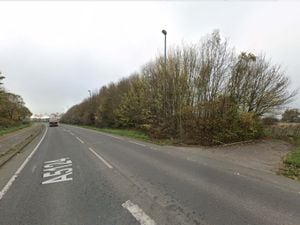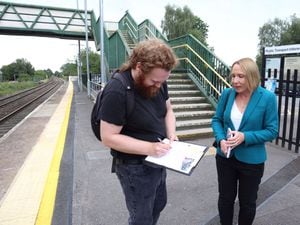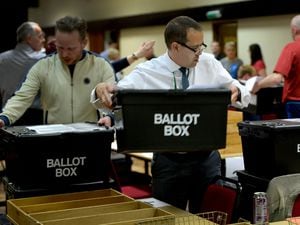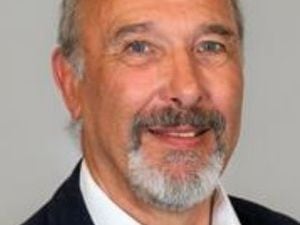Patrick Cormack, a politician who stood by his principles
Looking back on his long career in politics, Patrick Cormack once mused that he would like to have served in government, but his repeated clashes with Margaret Thatcher probably meant it was never going to happen.
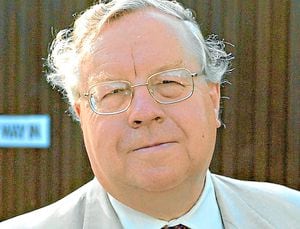
Instead, the former MP for South Staffordshire, who died this week aged 84, spent 40 years using his freedom as a backbencher to campaign on the issues that were close to this heart.
Speaking on his retirement at the 2010 General Election, he told the Express & Star that he found his natural home in the chamber of the House of Commons.
“The thing I shall remember most from my time here is the chamber, which I love very much," he said.
"I'm a House of Commons man and, when I've been in the House, I have always spent time every single day in the chamber.
"I would have relished the opportunity to serve in government, but unfortunately I found myself too often at odds with Mrs Thatcher's views and policies.
"There was a time during the 80s when I was quite often in the opposition lobby – most particularly over the poll tax."
Following his retirement as an MP, he became a 'House of Lords man', being ennobled as Baron Cormack.
Looking back on his childhood, he recalled that his parents Thomas and Kathleen were staunch supporters of the Conservative Party – well, usually.
“My father wasn’t politically active, but he joined the Conservative Party, although he had voted Labour in 1945," he said. "My mother never allowed him to forget it, and they didn’t speak for a week."
He was first elected MP for Cannock in 1970 – part of Ted Heath's surprise General Election victory. Almost immediately on his election, he was appointed a Parliamentary Private Secretary to the Department of Health and Social Security, and appeared to be one of the rising stars of the Heath government. His shared one-nation politics and love of the arts and architecture made him a natural ally of the then prime minister, but the Conservative defeat at the 1974 General Election stalled his ministerial hopes. Mr Cormack quickly discovered that Heath's successor, Margaret Thatcher, was a very different kind of leader, and spent much of the late 1980s in conflict with her on issues including the poll tax, dental fees, and charges for eye tests.
In November, 1981, he came into conflict with Mrs Thatcher when he called on her to reconsider her tough measures to cut inflation.
The Community Charge, as the poll tax was officially known, proved a particular bone of contention for Mr Cormack, who joined forces with Heath in a rebellion which also involved North Shropshire MP John Biffen and Birmingham Selly Oak MP Anthony Beaumont-Dark.
"I find it difficult to accept a proposal that those living in the smallest and most modest houses in my constituency should pay precisely the same as those who live in much more affluent ones,'' said Mr Cormack, shortly after retaining his seat at the 1987 election.
Throughout his life, Lord Cormack was a devout Christian who often found himself in conflict with the modernising wing of the Church of England. In later life, he served as a churchwarden at Lincoln Cathedral.
Appalled by the slaughter of 250,000 civilians in Bosnia during the Yugoslav civil war, he became one of the first MPs to call for British troops to intervene.
Patrick Cormack was born in Grimsby in May, 1939, and became a teacher at St James' Choir School, which he had attended as a pupil. He cut his teeth as a parliamentary candidate in the Labour stronghold of Bolsover for the 1964 General Election. Two years later he contested his home-town seat of Grimsby, but was defeated by Tony Crossland, who was education secretary in Harold Wilson's government at the time.
He moved to the West Midlands in 1967, where he took up a post as an English teacher at Wrekin College in Wellington.
Clare Hendy, director of marketing at the school, said staff were greatly saddened to hear of Lord Cormack's death.
"In addition to teaching English, he took on the role of Norman House assistant housemaster," she said.
"In his short time in Shropshire, pupils benefited from Lord Cormack's previous political experience as a Parliamentary candidate as he headed up the debating society, as well as his passion for the performing arts and leading school productions."
He moved to Brewood Grammar School in 1969, where he served as head of history. But his time at the school would be brief: the following year it was third time lucky in his bid to become an MP, defeating incumbent Labour MP Jennie Lee in Cannock.
Parliamentary boundary changes saw him stand for South West Staffordshire at the 1974 election, and from 1983 to 2010 he represented the seat of South Staffordshire.
Never a tribal politician, he became close friends with 1970s Labour prime minister Jim Callaghan, and was the only Conservative to be invited to his 90th birthday party at Downing Street.
In 2007 he saw off moves by his constituency party to deselect him, eventually winning a ballot of local party members with an 80 per cent share of the vote. But then, shortly before the election, he announced that he would be standing down anyway.
His successor in South Staffordshire, former education secretary Sir Gavin Williamson, described him as a kind and gentle figure who retained a great interest in the constituency for many years after leaving the Commons.
"He had a real fondness for the area and the place that he had represented for such a long time," he said.
"I always remember when we were going around the constituency, somebody called me 'Mr Williams', I remarked that people often shorten my name to Williams.
"He replied 'I have been MP here for 40 years, and people still lengthen my name to McCormack'.
"He was a lovely, gentle, kind man."
Sir Michael Fabricant, who has represented the neighbouring constituencies of Mid Staffordshire and Lichfield since 1992, also spoke of his sadness at the news.
"We were always able to co-operate on issues of mutual interest to our constituents, like the NHS and other local services," he said.
Sir Bill Cash, long-serving MP for Stone, also spoke of his sadness.
"He served his constituency with great determination for many years. He will be greatly missed."

